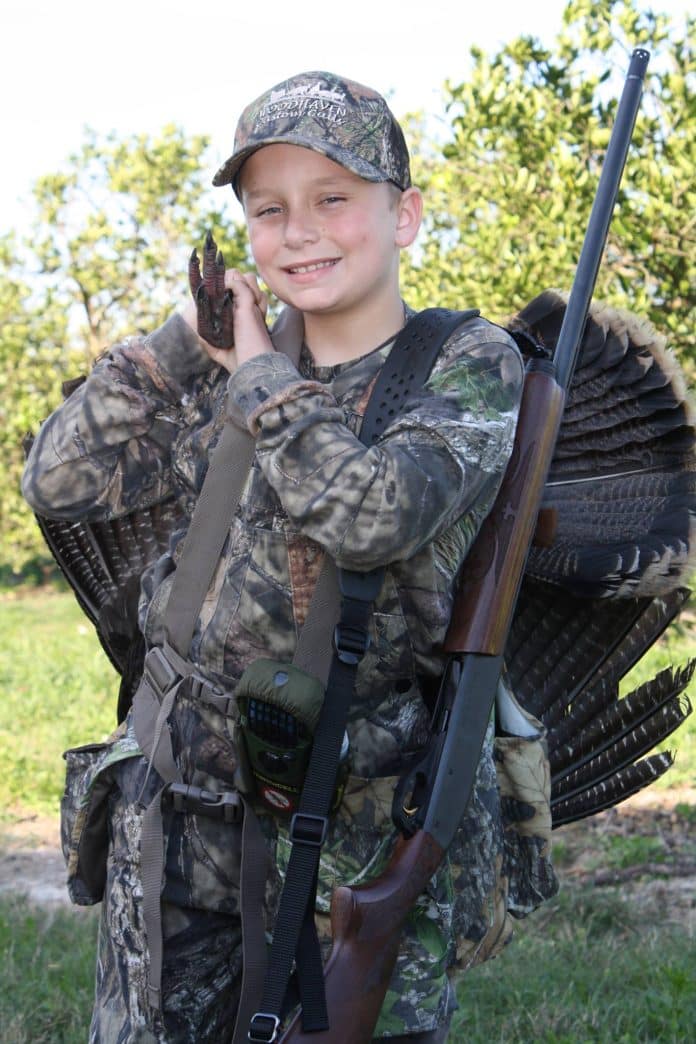Our fellow turkey hunters in south Florida have been in the woods busting beaks and filling skillets for a couple of weeks now. Reports are rolling in, filling up my inbox from many of my friends that the breeding season is in full swing down that way. Here, in our hunting zone, which is anywhere north of State Road 70, the birds are just beginning to fire up and that means big things are in store for our season opener,
The 2019 season is kicking off this weekend with the two day youth season, which is a great gift to the kids from our Florida Wildlife Commission, to allow them to take to the woods for their own chance at calling in a gobbler for their family’s table, but without having to do so in competition with the adults. Happily, I get to take advantage of this weekend, sort of a dress rehearsal for me, by guiding a youth to his first tom.
Early season is always an exciting time as the birds are fired up and I’ll be firing up my box call to match that excitement to hopefully get a gobbler’s attention. Now, I make my own callers and have a new box call that I just finished sanding and tuning that is sounding perfect. I’ll be using it in the mornings as the turkeys fly down to try to bring in a big boss tom right off of the limb. If he doesn’t come on the run and gets henned-up with a harem it’ll be a few hours before he’s bred the receptive ones and breaks away in search of one last piece of tailfeather. These late morning birds are the most vulnerable. That’s when I’m trading up my ornery sounding box call for a a much more subtle pot and glass call made by Spring King calls.
I was contacted a few years back by Kevin Vaughn, owner of Spring King Calls and asked to use one of his callers in order to offer some feedback and I gave them a two thumbs up. It’s got a soft and subtle yelp which is an all-natural sound you won’t find on the shelves in one of the mass-market chain stores. So, for late morning gobblers, desperate for a hen, I’m going to let that King sing and having called in fourteen gobbler for clients with Kevin’s call over the last few seasons, I’ve plenty of reason to be confident.
If you haven’t tried calling turkeys, there are only three vocalizations you need to learn to be successful. Yelps, clucks and purrs. Yelps strung together five or seven at a time in a rhythm will mimic a hen searching for a mate. Clucks are simply a casual call as if to say, “Hey, I’m over here,” and purrs are the sound of content and feeding turkeys which when that big tom is hung up out of range, soft feeding purrs can bring him on in.
You can find digital recordings of these, as well as a full range of turkey talk on Youtube, just search for Scott Ellis’s Hunt Quest series of videos; he’s produced some remarkable turkey calling tutorials. As always, I’d love to hear about your own outdoor adventures and maybe see a photo or two of your successes at [email protected]. God Bless and good hunting!

